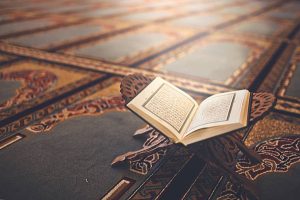
The day of Jumu’ah holds great importance and significance in Islam. It is among the great favours of Allah Ta‘ala upon this Ummah and it is a salient feature of Islam.[1]
Hazrat Rasulullah (sallallahu ‘alaihi wasallam) said:
عن أبي لبابة بن عبد المنذر قال: قال النبي صلى الله عليه وسلم: إن يوم الجمعة سيد الأيام وأعظمها عند الله وهو أعظم عند الله من يوم الأضحى ويوم الفطر فيه خمس خلال خلق الله فيه آدم وأهبط الله فيه آدم إلى الأرض وفيه توفى الله آدم وفيه ساعة لا يسأل الله فيها العبد شيئا إلا أعطاه ما لم يسأل حراما وفيه تقوم الساعة ما من ملك مقرب ولا سماء ولا أرض ولا رياح ولا جبال ولا بحر إلا وهن يشفقن من يوم الجمعة (سنن ابن ماجة، الرقم: ١٠٨٤)[2]
“The day of Jumu’ah is sayyidul ayyaam (i.e. the leader of all days), and the greatest day (from the days of the week) in the sight of Allah Ta‘ala. It is more virtuous than the day of Eidul Adha and the day of Eidul Fitr in the sight of Allah Ta‘ala.
“There are five special events that are exclusive to the day of Jumu’ah. (Firstly,) on this day, Allah Ta‘ala created Nabi Aadam (‘alaihis salaam). (Secondly,) Allah Ta‘ala sent Nabi Aadam (‘alaihis salaam) (and Hazrat Hawaa (radhiyallahu ‘anha) to the earth on this day. (Thirdly,) on this day, Nabi Aadam (‘alaihis salaam) passed away (and was returned to his original abode). (Fourthly,) during the day of Jumu’ah, there is a special moment (of acceptance) wherein whatever dua the servant makes to Allah Ta‘ala, his dua will be answered, as long as he does not ask for anything haraam. (Fifthly,) on this day, Qiyaamah will take place.
“There is no angel that is close to Allah Ta‘ala, nor any sky or earth, nor any mountain or sea, except that it fears the day of Jumu’ah (due to the fact that Qiyaamah will take place on this day).”
Hazrat Rasulullah (sallallahu ‘alaihi wasallam) mentioned that the day of Jumu’ah is an illuminated day, and the night of Jumu’ah is an illuminated night.
In his Mubaarak Hadith, Hazrat Rasulullah (sallallahu ‘alaihi wasallam) has exhorted the Ummah to increase their recitation of durood upon him on the day of Jumu’ah, as this will be a means of their forgiveness and a means of gaining his duas.
عن عمر بن الخطاب رضي الله عنه قال: أن رسول الله صلى الله عليه وسلم قال: أكثروا الصلاة علي في الليلة الزهراء واليوم الأغر فإن صلاتكم تعرض علي فأدعو لكم وأستغفر (القربة لابن بشكوال، الرقم: ١٠٧)[3]
Hazrat Umar bin Khattaab (radhiyallahu ‘anhu) reports that Hazrat Rasulullah (sallallahu ‘alaihi wasallam) said, “Increase your recitation of durood upon me on the night and day of Jumu’ah as your durood is presented to me. I then make dua to Allah Ta‘ala for you and ask Him to forgive your sins.”
Virtues of Jumu’ah
Forgiveness of Sins Through Performing Jumu’ah
عن أبي هريرة أن رسول الله صلى الله عليه وسلم قال: الجمعة إلى الجمعة كفارة ما بينهما ما لم تغش الكبائر(سنن ابن ماجة، الرقم: ١٠٨٦)[4]
Hazrat Abu Hurairah (radhiyallahu ‘anhu) reports that Hazrat Rasulullah (sallallahu ‘alaihi wasallam) said, “The sins committed between two Jumu’ahs, provided they are not major sins, will be forgiven by Allah Ta‘ala (upon the performance of both Jumu’ahs).”
The Special Day of the Believers
عن ابن عباس قال: قال رسول الله صلى الله عليه وسلم: إن هذا يوم عيد جعله الله للمسلمين فمن جاء إلى الجمعة فليغتسل وإن كان طيب فليمس منه وعليكم بالسواك (سنن ابن ماجة، الرقم: ١٠٩٨)[5]
Hazrat Ibnu Abbaas (radhiyallahu ‘anhuma) reports that Hazrat Rasulullah (sallallahu ‘alaihi wasallam) said, “This day (of Jumu’ah) is an Eid which Allah Ta‘ala has granted to the Muslims. The one who comes for Jumu’ah Salaah should take a bath, and if he has itr (perfume), he should apply some, and I encourage you to use the miswaak.”
The Day which Contains a Special Moment of Acceptance
عن أنس بن مالك أن رسول الله صلى الله عليه وسلم قال: أتاني جبريل بمثل المرآة البيضاء فيها نكتة سوداء قلت: يا جبريل: ما هذه قال: هذه الجمعة جعلها الله عيدا لك ولأمتك فأنتم قبل اليهود والنصارى فيها ساعة لا يوافقها عبد يسأل الله فيها خيرا إلا أعطاه إياه قال: قلت: ما هذه النكتة السوداء قال: هذا يوم القيامة تقوم في يوم الجمعة ونحن ندعوه عندنا المزيد (مسند أبي يعلى الموصلي، الرقم: ٤٢٢٨)[6]
Hazrat Anas bin Maalik (radhiyallahu ‘anhu) reports: The day of Jumu’ah was presented to Rasulullah (sallallahu ‘alaihi wasallam). Jibreel (‘alaihis salaam) came to Rasulullah (sallallahu ‘alaihi wasallam). In his palm was something resembling a white mirror, and in the middle of the mirror was a black spot. Rasulullah (sallallahu ‘alaihi wasallam) asked Jibreel (‘alaihis salaam), “What is this, O Jibreel” Jibreel (‘alaihis salaam) replied, “This white mirror signifies the day of Jumu’ah which has been presented to you by your Sustainer so that it may be an Eid for you and your Ummah after you. There is abundant goodness for you in it. On account of you receiving the first day (i.e. from Friday, Saturday and Sunday), you will be the first (to enter Jannah with your followers), and the Jews and Christians (who embraced Islam in the period of their respective Ambiyaa (‘alaihimus salaam)) will be after you. During the day of Jumu’ah, there is a special moment of acceptance. Whichever person makes dua to his Rabb in that moment for any good which is destined for him, Allah Ta‘ala will grant it to him, and whichever person seeks protection from evil, Allah Ta‘ala will remove the evil as well as a greater evil from him. In the Hereafter, we will call this day “the Day of Increase” (for the people of Jannah who will be granted the vision of Allah Ta‘ala and abundant increase of bounties on this day).”
Note: The black spot signified the day of Jumu’ah which will be the last day of the world. In the Hadith of Musnad Abi Ya’laa, it is reported that Hazrat Rasulullah (sallallahu ‘alaihi wasallam) said, “The days were shown to me, and among them, Friday was shown to me. It resembled a shiny mirror, in the middle of which was a black spot. I asked Jibreel (‘alaihis salaam) what the black spot signified. He said, ‘It is the final hour (i.e. Qiyaamah which will occur on a Jumu’ah).’”
A Day of Forgiveness
عن أنس قال: قال رسول الله صلى الله عليه وسلم: إن الله ليس بتارك أحدا من المسلمين يوم الجمعة إلا غفر له (المعجم الأوسط للطبراني، الرقم: ٤٨١٧)[7]
Hazrat Anas (radhiyallahu ‘anhu) reports that Hazrat Rasulullah (sallallahu ‘alaihi wasallam) said, “Allah Ta‘ala does not leave any of the Muslims on the day of Jumu’ah without forgiving them (i.e. those who uphold the rights of Allah Ta‘ala and the servants).”
Passing Away on the Day or Night of Jumu’ah
عن عبد الله بن عمرو قال: قال رسول الله صلى الله عليه وسلم: ما من مسلم يموت يوم الجمعة أو ليلة الجمعة إلا وقاه الله فتنة القبر (سنن الترمذي، الرقم: ١٠٧٤، وقال: هذا حديث غريب)
Hazrat Abdullah bin Amr (radhiyallahu ‘anhu) reports that Hazrat Rasulullah (sallallahu ‘alaihi wasallam) said, “There is no Muslim who passes away during the day or night of Jumu’ah except that Allah Ta‘ala will save him from the punishment of the grave.”
[1] قال رحمه الله (والإذن العام) أي من شرط أدائها… لأنها من شعائر الإسلام وخصائص الدين فتجب إقامتها على سبيل الاشتهار (تبيين الحقائق ٢٢١/١)
[2] وقال العلامة البوصري رحمه الله في مصباح الزجاجة ١٢٩/١: إسناده حسن
[3] وسنده ضعيف كما في المقاصد الحسنة، الرقم: ١٤٨
[4] وصحيح مسلم بزيادة: “الصلاة الخمس”: ٢٣٣
[5] وقال العلامة البوصري رحمه الله في مصباح الزجاجة ١٣٢/١: هذا إسناد فيه صالح ابن أبي الأخضر لينه الجمهور وباقي رجال الإسناد ثقات
[6] المصنف لابن أبي شيبة، الرقم: ٥٥٦٠، ونقل الشيخ محمد عوامة في تعليقه على المصنف عن ابن عساكر: إن لحديث أنس عدة طرق في جميعها مقال، ونحوه في مسند أبي يعلى الموصلي، الرقم: ٤٢٢٨، ورجاله صدوق
[7] وقال العلامة الهيثمي رحمه الله: رواه الطبراني في الأوسط ورجاله رجال الصحيح خلا شيخ الطبراني وهو ثقة
 Ihyaaud Deen An Effort to Revive Deen in Totality
Ihyaaud Deen An Effort to Revive Deen in Totality



